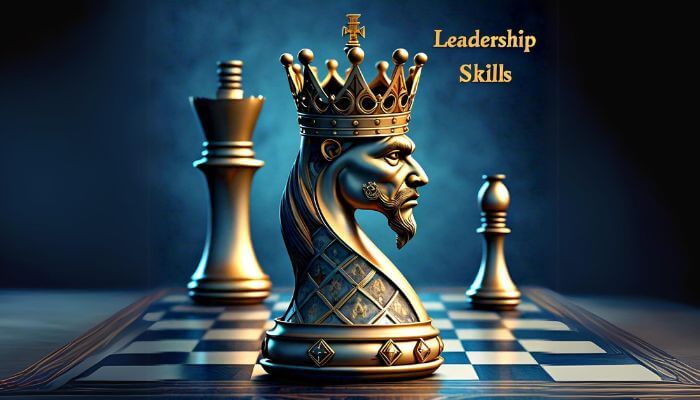Introduction
With essential leadership skills, people gain a mindset and set of tools that allow them to motivate and influence others, and elevate those around them. Whether you are running a small team or scaling a multinational, harnessing the power of essential leadership skills is an absolute necessity. Leadership skills make you a better boss because they help you increase your ability to achieve results while improving your team’s morale. This article describes 10 essential leadership skills you need to succeed, paired with concrete steps you can take to develop them.
Why Leadership Skills Are Crucial for Success
Leadership skills are the cornerstone of management and essential for goal attainment, both personal and professional. Strong leadership ensures quality in decision-making, promotes teamwork, and boosts output. With a motivational and encouraging environment, employees will be willing to give their best, thus improving engagement and producing the best results. Additionally, quality leadership will turn challenges into opportunities and ensure leaders are confident in facing any situation. By developing these skills, you set the stage for not only your success but also the success of your team and organization.
10 Essential Leadership Skills You Need to Succeed
1. Communication
Communication is the cornerstone of effective leadership. The great leader does not command or control, but the one who articulates and clarifies. Good communication helps to prevent confusion and misunderstandings. It helps to build trust by understanding the needs and concerns of your team members. It leads to better collaboration because people do not agree if they do not understand. To become a great communicator, focus on clarity and brevity, be a good listener, and flex your style to suit your audience.
Also Read: How Can Leaders Develop Emotional Intelligence and Empathy?
2. Emotional Intelligence
Emotional intelligence (equivalent to EQ for emotional quotient) is the ability to understand and control your emotions and those around you. Emotionally intelligent leaders tend to be more empathic, have better stress management, and higher ability to create a positive workplace relationship with their colleagues. Emotional intelligence aids in resolving conflict, decision-making aids, and managing workplace stress. It is therefore important for an employee to improve their level of emotional intelligence. Being more self-aware, developing a higher level of empathy and effective emotion management skills will contribute to this development.
3. Decision-Making
The ability to make wise and timely decisions is a key to successful leadership. Good leaders have to deal with very complicated situations that require clear thinking and sound judgment. Good decision-making is the ability to have enough information, weigh the possible outcome, and make the best decision. Sometimes is about taking risks. There are many ways to improve your skills in making decisions. The first step is to be informed and get the data you need. Second, to see the positive or negative sides of each possibility, and finally, listen to your feelings and trust yourselves.
4. Vision
Without an idea, a leader is like a ship without a compass. A visionary leader knows where the team or organization needs to go and can articulate it in such a way as to inspire others to follow and work with him. Having a clear vision is instrumental in giving direction and providing people with purpose, ultimately helping your team to work together and get to where you want them to be. To develop your visionary skills first, identify your long-term goals; second, communicate them effectively; and, lastly, motivate your team.
5. Integrity
Honesty and strong moral principles are the main characteristics of integrity. It is a valuable leadership quality as it builds trust and esteem. People with integrity can manage in a consistent, straightforward way. They take their values seriously irrespective of the challenges. In a company with integrity, hierarchies remain permeable and transparent. Integrity creates space for a culture of transparency and accountability, and thus it is vital to a company’s long-term success. Be the person who can manage in a consistent, straightforward way. If you have integrity, you will take your values seriously irrespective of the challenges.
6. Adaptability
In today’s fast-paced world, adaptability is more important than ever. Leaders need to adjust quickly to shifts in the market, new technology, global events, or changes in team’s composition and dynamics. Leaders need to be comfortable with ideas that are not own and need to quickly change direction if the path is not working out. To improve flexibility, work on thinking flexibly, listen to feedback, and always be learning about what is going on in current industry trends.
7. Delegation
The art of delegating is about delegating to the right people the right work. It is an important leadership habit because it empowers your team while allowing you to handle things on a more senior level. The right delegation includes getting to know your team’s strengths, establishing expectations, and offering resources to achieve. For better delegation, understand which work can be delegated, let your team handle it, and provide guidance when needed.
8. Problem-Solving
Leadership will sometimes mean figuring out the solution to a problem or obstacle. Good problem-solving allows you to break down an issue, think about it creatively, and find solutions to implement. Strong problem-solving skills will help you when you encounter resistance and need to find a way around it. So that you may take advantage of your skills, practice identifying the root causes of a problem, generate multiple solutions to a problem and weigh those options based on potential impact.
9. Accountability
Accountability means taking ownership of your actions and decisions. A leader who holds themselves accountable sets a powerful example for others. As a leader, you have to reliably do what you are saying and committed to, and provide access to the information people need for success. Being accountable means you are also upfront about what went wrong and how you are learning from it. Being accountable demonstrates to your team that you are serious about the mission of your organization and that you appreciate their contributions. To build accountability, set clear expectations, follow through on commitments, and encourage a culture of feedback and continuous improvement.
10. Mentoring and Coaching
Mentoring and coaching is critical to developing your team and ensuring their longevity. That is the new leadership role of directing and guiding the development of your team members. From providing feedback to sharing your experiences, through to helping others be their best, mentoring and coaching is an important leadership responsibility to further develop your team. If you are serious about being a better mentor and coach, focus on developing relationships with your team, listening to what team members truly need, and providing ongoing support and encouragement.
Also Read: How Entrepreneurship as a Career Can Transform Your Life
How to Develop and Strengthen These Leadership Skills

Developing leadership skills is an ongoing process that requires self-reflection, continuous learning, and practice. Here are some practical steps to help you strengthen the leadership skills discussed:
- Seek Feedback: Regularly ask for feedback from peers, mentors, and team members to identify areas for improvement.
- Learn from Others: Study the leadership styles of successful leaders and apply their strategies to your own leadership approach.
- Engage in Continuous Learning: Take advantage of leadership development programs, workshops, and online courses to enhance your skills.
- Practice Self-Awareness: Regularly assess your strengths and weaknesses, and work on areas that need improvement.
- Mentor Others: By mentoring others, you also develop your own leadership skills and gain new perspectives.
Conclusion
The 10 leadership skills identified in this article are every successful leader must have or work toward. Having communication, emotional intelligence, decisiveness, vision, integrity, adaptability, delegation, problem identification and resolution, accountability, and mentorship. Start by assessing your current abilities, set goals for improvement, and commit to continuous learning. As you develop these skills, you will not only become a more successful leader but also inspire those around you to achieve their best.



